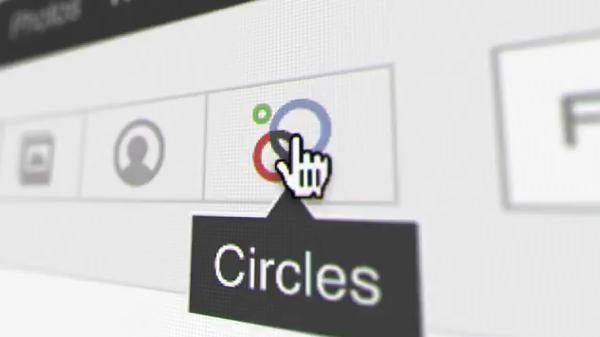Despite early praise for an innovative approach to privacy, a loophole has been discovered in Google+ that can completely break any privacy protections. Simply by “re-sharing” content, a photo, video, or post intended for a select audience can become public across the web.
The Broken Circle of Re-Sharing

Google+ Circles is one of the primary ways that the Google+ social network is differentiating itself from Facebook. Rather than being completely public about all your updates, you can share your content with only select groups. Or can you?
“Re-sharing,” an option that allows other users to re-post your content in just a couple clicks, breaks this system. Unless a user specifically disables re-sharing on every piece of content they post, other users can then spread that content to other circles or even make it public on the web.
Re-sharing is enabled by default. There’s no way to disable it by default in your Google+ settings.
According to feedback received by Tim Bradshaw when he reported the issue, Google has acknowledged the problem and stated “that this is exactly the kind of issue [Google] hopes to identify and resolve while Google+ is still in ‘field trial’ mode.”
Privacy in the Social and Search Realms
While many of the complaints levied against the social networking sites, especially Facebook and Twitter, are based on user-end silliness (they don’t want the site to display ads, they don’t want any changes in their oh-so-comfy interface, etc.), privacy brings up more serious questions. Facebook has long been condemned for its default settings, which often presume you’d like to be highly visible on the web.
Google’s no saint when it comes to privacy, either. Beyond the privacy fiasco of Google Buzz, which allowed nearly complete visibility to anyone you’ve ever emailed, Google also comes under fire regularly for the search data they choose to store. When users are logged into a Google account and conduct a search, their search history, IP address, regional data, and more are logged away.
In this case, Google is being condemned on both the social and search front, since the default settings of the Google+ Profile customize search, ads, and other content to the data recorded by Google both on Google+ and Google search. There’s a difficult balance to strike, however, between providing personalization and privacy.
How should Google respond? While the settings allow users to decide how private or public they want to be, whatever is set as default will remain the mode of sharing for the less technically advanced users. In cases like re-sharing, turning off re-sharing by default or posing the initial re-sharing settings as a plain English question during setup would work well.
Regardless of Google’s exact choice, however, users should keep their eyes trained on their personal settings to ensure that they receive their preferred level of privacy.
